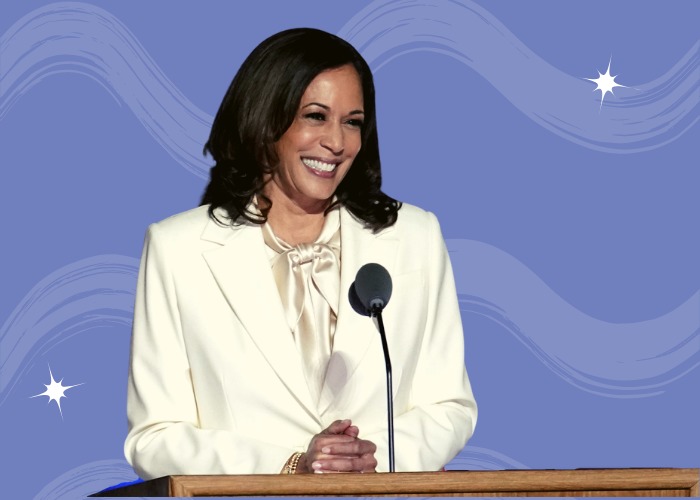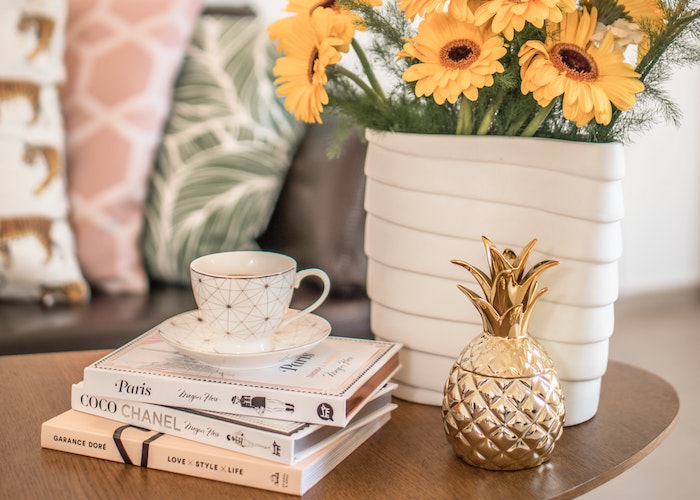
I’ve always found the debate around the concept of “representation” as a political axis to be a fairly tedious one. On the one hand, you have the kind of paper-thin neoliberalism that leads to memes about “hiring! more! female! guards!” becoming a real PR strategy. In this approach — wherein Sheryl Sandberg leans in to the point of destroying democracy — the underlying conditions that lead to oppression, and to the exclusion of entire swaths of society in the first place, are left completely untouched or unconsidered, while the faces which represent them become more appealingly diverse. But on the other hand, you have corners of Left thinking which dismiss any advancement in the diversity of power, leadership, or influence to be mere window dressing, even when this very diversity can be shown to have material benefits that go well beyond personal glorification. The conversation, like many political disagreements between people who are largely on similar sides of an issue, is reduced to an either-or nitpicking, rather than a nuanced acknowledgment that while Girlboss Fraud is bad, parity in representation can have tangible benefits for a society.
So it is with some trepidation that I wade into the conversation about representation within the incoming Presidential administration which, in our new Vice President Kamala Harris, has a fair amount to discuss. However, I’m not at this moment interested in discussing the barriers broken by her immutable characteristics. I am now, and have been since she launched her candidacy, fascinated at the inherent representation around one of her most substantial life choices: the choice to not become a mother.
“I am now, and have been since Kamala Harris launched her candidacy, fascinated at the inherent representation around one of her most substantial life choices: the choice to not become a mother.”
I should say here that she is, by all accounts, a devoted stepmother. And for some in the childfree community, this means that she is technically not a part of the club. But for the purposes of this conversation, the fact that she never became a mother herself — and that this fact was somehow, miraculously, almost never discussed throughout the entire campaign season — this choice and lifestyle are incredibly relevant. The fact that only late into the general election did I even realize she never became a mother herself speaks volumes about how much this conversation has evolved, and what it could mean for the future of how we define women, mothers, and communities.
When we look back only four years at the candidacy of Hillary Clinton, it’s impossible not to see the extent to which her imperfect presentation of archetypical femininity and motherhood haunted her since her days as First Lady. And I say this as someone who was never particularly a fan or supporter of her politics, and who has no interest in overstating the extent to which misogyny was responsible for her stunning loss. There were clearly other issues at play that spoke as much to a rejection of the political establishment as to a rejection of her personally, but her being a woman who never fit into the mold of how we want a woman to be was undeniably a major factor. Until now, it seemed, in order for a woman to even dream of succeeding beyond a certain level, she had to go out of her way to perform a first-and-foremost identity of motherhood and wifehood that underpinned anything else she aspired to.
Which makes it all the more stunning that Vice President Harris’ objectively much more uncommon personal path has been largely absent from the conversation about her candidacy. Her role as stepmother and aunt are clearly very important to her, but she is unabashedly a woman of primarily political and professional ambition. And I should say here, too, that there is much in her record, both as a politician and prosecutor, that I disagree with. (Perhaps this is where I most greatly diverge from the representation-is-fluff wing of the Left — I don’t think you have to agree with a leader’s agenda in order to mine positives and window-shifting changes from their ascent, as that ascent usually says as much about the society around them as it does about themselves.)
“Until now, in order for a woman to even dream of succeeding beyond a certain level, she had to go out of her way to perform a first-and-foremost identity of motherhood and wifehood, that underpinned anything else she aspired to…”
In any case, even the most staunchly-conservative voices have largely been focused on issues completely removed from Harris’ personal life. They seemed more interested, if anything, in Joe Biden’s son than the fact that Harris doesn’t have any children of her own. And this shift in narrative is nothing sort of seismic.
As a woman who feels similarly compelled by life projects and ambitions that do not involve being a biological mother, it’s hard not to feel heartened and hopeful in the face of this sea change. Despite the fact that birth rates have been precipitously dropping for years (or, perhaps as I’m thinking of it, because of this), the choice to be a married, financially stable, healthy woman who does not want children is still treated with everything from mild skepticism to personal disappointment to open judgment. It’s something I have learned to develop canned responses for, a conversation I’ve come to navigate like a character in an RPG, working my way through a few typical responses or questions and enduring them with a firm determination to not be personally offended by whatever might be said. Even the most inconsiderate or hurtful comments — family members who all but say that all of your accomplishments or dreams pale in comparison to a hypothetical child — come from a place of pain, or defensiveness around a perceived judgment on their own life choices. I’ve learned to lean heavily into comments about how much I love children and, instead, ask about their own if they have them, as it tends to bring a kind of détente to the latent parent/childfree tension.
“The choice to be a married, financially stable, healthy woman who does not want children is still treated with everything from mild skepticism to personal disappointment to open judgment.”
And I do understand that the presumption that people who opt not to have children are selfish and judgmental people doesn’t always come from nowhere. There are forums for the childfree which can often devolve into frankly disturbing levels of child-hate. We also live, in the States, in a society that is profoundly hostile to parents (and to mothers in particular). Those who opt out of children often don’t acknowledge that they still very much, like all human beings, depend on a society that continues to have them at a sustainable rate. I hope to retire someday and will be just as much indebted to the generations which follow me for keeping the world running and potentially giving me sponge baths as anyone who did have their own kids. Those who travel blissfully solo or dine out alone can be much too quick to scorn and side-eye the parents struggling with a cranky toddler or screaming baby. There can sometimes be a misconception that opting out of having your own children means you get to opt-out of being part of a community that very much includes children, or liberates you from the necessary empathy of those taking on the burden of raising the next generation.
It is this very misconception, though, that gives me particular hope in Harris’ trajectory. Here, we have a woman who has never become a mother, and who by all accounts is largely accepted by the world around her in this choice, but who has also very much become a community member of the children in her life, in many ways integral to the people they will become and the kind of world they will be creating along with them. Despite not being a person who would benefit from it personally, she advocates for what is (by American standards) a generous family leave plan. Albeit imperfectly, she represents a kind of model for adult womanhood that, if replicated at scale, could begin to meet the needs of a changing world. As more women make the choice not to become biological mothers, we need even more support for the families which do assume that role. (And we must understand that the more appealing and financially manageable we make the choice to start a family, the more people will be encouraged to join.) We need to expand our concept of parenting to children we did not ourselves birth. We need to embrace women who opt out without judgment, and give the women who opt in the kind of empathy and community-based networks they need.
“As more women make the choice not to become biological mothers, we need even more support for the families which do assume that role. We need to embrace women who opt out without judgment, and give the women who opt in the kind of empathy and community-based networks they need…”
I was once told about my choice not to be a mother that, while I could decide that being a biological parent was not for me, I could not ethically opt-out of shaping the generation that would follow me on this planet. And I truly believe that in embracing this approach, in rejecting the false dichotomy between “parent” and “childfree,” in realizing that we are all part of a community that will depend on the children it raises and asking ourselves how we can ensure that this ensuing generation will be its strongest (beyond our own children, even, if we have them), we can create a much healthier society. Like Harris, you may not be a mother, but you can still be a stepmother, an auntie, an advocate for parents, and the possibility of a role beyond “Wife-And-Mother-And-” as a social identity. “You can be anything you want” can go beyond something we tell children, and start to be something we believe ourselves.
Image via CNN/Custom



